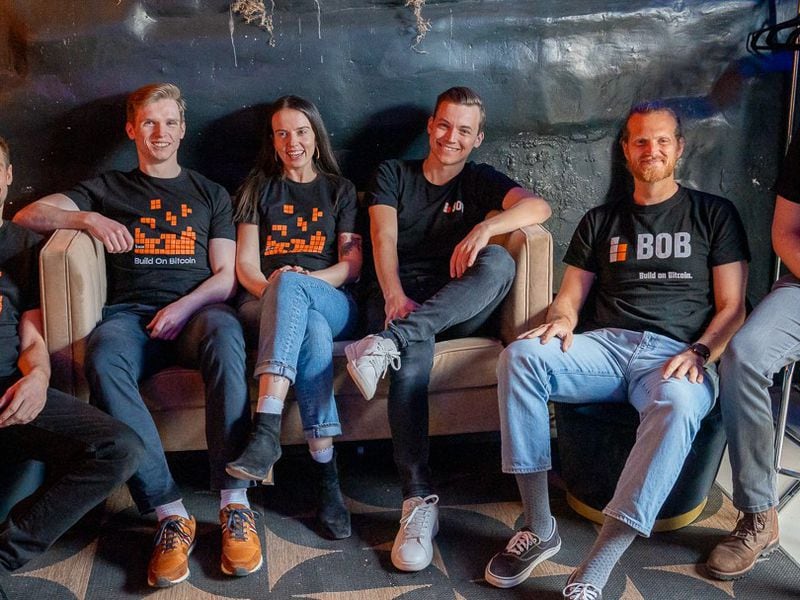“If Bitcoin breaks, then so does our industry as a whole, so we might as well use Bitcoin security for cross-chain DeFi,” BOB co-founder Alexei Zamyatin, told CoinDesk.
The team behind the project BOB – a reference to “Build everything on Bitcoin” – has presented the network’s design to position Bitcoin, the original and thus oldest blockchain, as the center of decentralized finance (DeFi), CoinDesk is first to report. Usually DeFi is more closely linked with newer blockchains like Ethereum and Solana.
BOB’s vision is that Bitcoin would sit at the center of the crypto universe and therefore may as well serve as the foundation for DeFi as well.
BOB, whose top team members include a top collaborator of the closely watched independent developer Robin Linus, is building a layer-2 network on Bitcoin – described as “hybrid” since it’s compatible with smart-contracts written for Ethereum.
The developers behind BOB, a build-on-Bitcoin project, released a new “vision paper” Thursday outlining a design for a “hybrid layer-2” network they say could help to position Bitcoin – the oldest and largest blockchain – as the new foundation for decentralized finance (DeFi).
DeFi is typically more closely associated with newer blockchains like Ethereum and Solana. BOB’s perspective is that Bitcoin is the center of the crypto universe and therefore it may as well be for DeFi as well.
“If Bitcoin breaks, then so does our industry as a whole, so we might as well use Bitcoin security for cross-chain DeFi,” BOB co-founder Alexei Zamyatin, told CoinDesk in a Telegram message. Zamyatin was a co-author, alongside the closely-watched developer Robin Linus, of a research paper outlining crucial improvements to a proposed system for enabling more programmability on Bitcoin.
BOB calls itself a hybrid layer-2 network because it’s built on Bitcoin but has Ethereum compatibility. The project is built to create trust-minimized bridges between itself and layer-1 blockchains like Ethereum, according to the abstract the vision paper, shared with CoinDesk.
This has the aim of placing Bitcoin as the anchor for DeFi activity, harnessing its security and liquidity, owing to BTC’s market cap in excess of $1 trillion.
“Instead of wrapping BTC into DeFi-capable chains, users deposit assets from various chains onto the BOB network to take advantage of native BTC liquidity and Bitcoin-secured withdrawals,” the paper said.
Fees generated by BOB would also then contribute to Bitcoin’s security budget, it added.
BOB, which raised $10 million in seed funding in March, harnesses BitVM2, the open-source software which could enable the deployment of smart contracts on Bitcoin through compressing programs which are then verified in BTC transactions to prevent nefarious use.
The proposed design of the hybrid network would use Bitcoin as an anchor chain, with Ethereum and other layer 1s verifying that BOB has finalized on Bitcoin before accepting withdrawals. This would be practical because of Bitcoin’s inherent security and also its simplicity, according to BOB.
In essence, it’s far easier for other networks to verify Bitcoin than it is to develop a bridge that both Bitcoin and another layer 1 can verify.
Users would be able to deposit and withdraw BTC to and from BOB as long as there is at least one honest node to perform a dispute, according to the paper.
This paradigm is then used to create a trust-minimized bridge to Ethereum, secured by Bitcoin. BOB would perform the function of both bundling transactions carried out on other Ethereum and its layer 2s and also verifying their correctness on Bitcoin.
“This design can be extended to the majority of layer-one chains that have smart contacts,” according to the paper.

